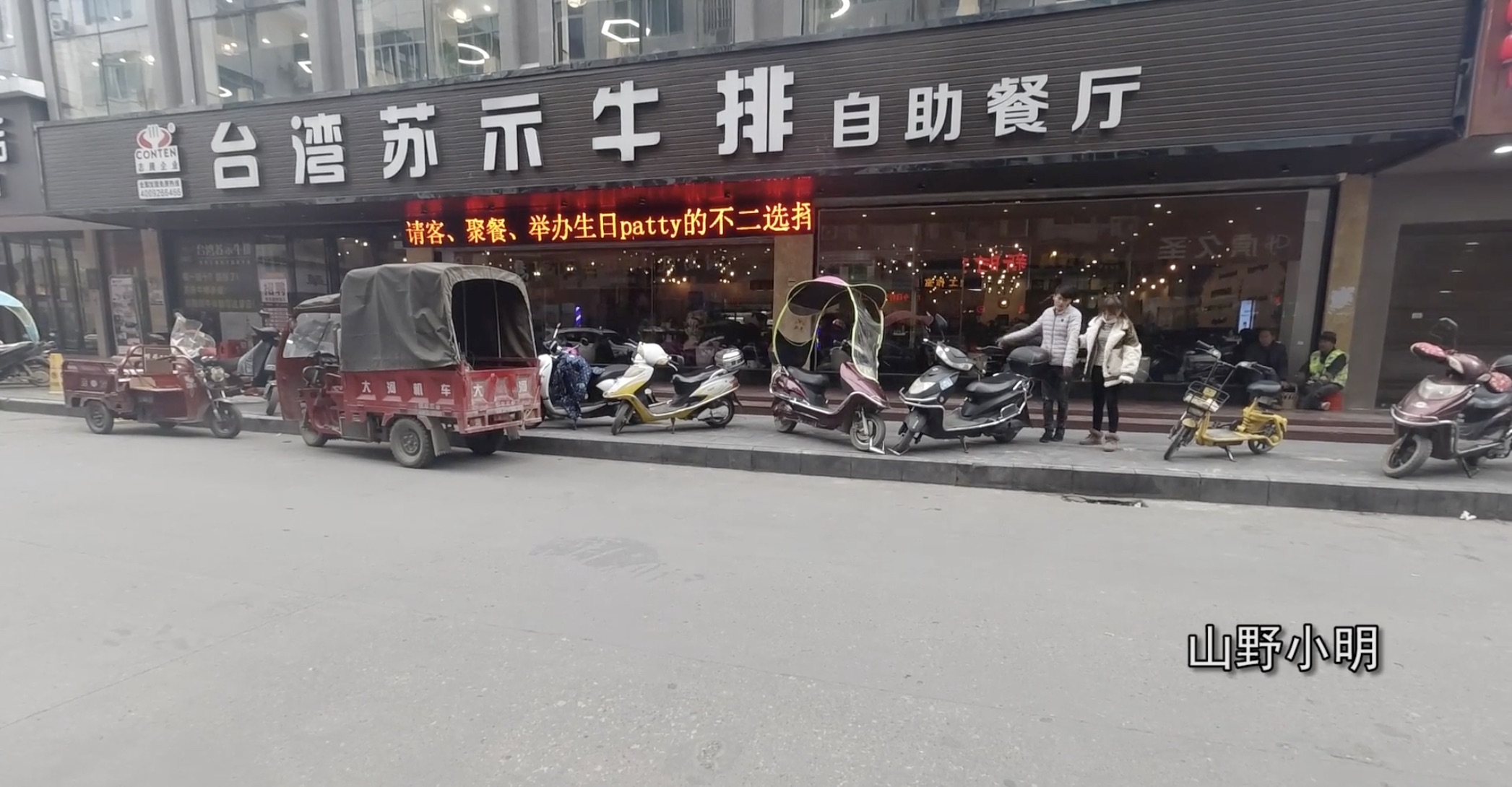Birthday patty
« previous post | next post »
Liwei Jiao sent in this screenshot:
The video is from this website. It was published on 12/16/20. The screenshot is from about 4:50. The location is in Hechi, a prefecture-level city in the northwest of the Guangxi Zhuang Autonomous Region. The location on the map shows that it borders Guizhou to the north. Guangxi is home to the largest "minority language" in the PRC, Zhuang, a group of Tai languages.
The name of the restaurant is Táiwān Sū shì niúpái zìzhù cāntīng 台湾苏示牛排自助餐厅, which presents us with some oddities. Before I attempt to translate what it says, I should note that Google Translate's "spellchecker" is smart enough to suggest, "Did you mean Táiwān Sū shì niúpái zìzhù cāntīng '台湾苏氏牛排自助餐厅'"?
So what's the difference between Sū shì 苏示 and Sū shì 苏氏? As can be seen from the Romanizations, they are perfectly homophonous, down to the tones. The latter version means "Su's" or "Su Family", as the name of the owner of the chain, while the former doesn't really mean anything particularly intelligible — "Su manifest / reveal". Rather, it seems to have been dreamed up by a competitor to the Sū shì 苏氏 ("Su's" or "Su Family") chain to sound close enough to suggest the same thing but still not be exactly the same.
Táiwān Sū shì niúpái guǎn 台湾苏氏牛排馆 ("Taiwan Su's Steakhouse") is a restaurant chain that has dozens of locations in China. Táiwān Sū shì niúpái 台湾苏示牛排 ("Taiwan Su Shi Steaks") is also a registered trademark and has restaurants at varied locations in China. Even though both chains claim a Taiwan pedigree, steakhouses with those trademarks do not exist in Taiwan. This just goes to show how fashionable Taiwan is thought to be, especially in smaller cities outside of major urban areas. In any event, the restaurant in this video is called Táiwān Sū shì niúpái zìzhù cāntīng 台湾苏示牛排自助餐厅 ("Taiwan Su Shi Steak Buffet").
The small words in yellow on the moving signboard at this point say:
Qǐngkè, jùcān, jǔbàn shēngrì patty de bù èr xuǎnzé
请客、聚餐、举办生日patty的不二选择
"The best choice for inviting guests, having dinners together, and holding birthday parties."
Here's the story of what happens in this vlog post:
Xiaoming went to town to visit Xiaoya. He planned to treat her to Western food, but they ended up eating at a street vendor. The documentary-ish video depicts how Xiaoming waited for Xiaoya, who was making a silk quilt as a worker, to have a meal with her, and how they spent time together in the town.
"Xiaoming" seems like a Chinese "YouTuber" who produces videos concerning country life for the video-sharing website Xīguā shìpín 西瓜视频 ("Watermelon Video"). He has 521,000 followers now.
Selected reading
- "Home party " (10/13/18)
- "Fried scholar's" (8/6/11)
- "Transcriptional and hybrid words in Mandarin" (3/6/14)
- "The Westernization of Chinese" (9/6/12) — viral video of "Miss Lin" on "fashion"
[Thanks to Yijie Zhang, Jinyi Cai, and Chenfeng Wang]

Tohamytech said,
December 22, 2020 @ 2:49 pm
Written in the Haitian Creole language
Y said,
December 22, 2020 @ 4:05 pm
Do Chinese trademarks apply to written or also to spoken names? In other words, can you name your business or product a clever identical homophone of another, and get away with it?
John Swindle said,
December 24, 2020 @ 4:39 am
I figured it was a Soviet-style steakhouse.
~flow said,
December 24, 2020 @ 6:07 am
Came here expecting this to turn out a misspelling of 台湾素食牛排自助餐厅 'Taiwan Vegetarian Steak Buffet'. Alas.
John Swindle said,
December 24, 2020 @ 6:36 am
@~flow: Indeed. Not a Jiangsu-style Taiwan steakhouse, though.